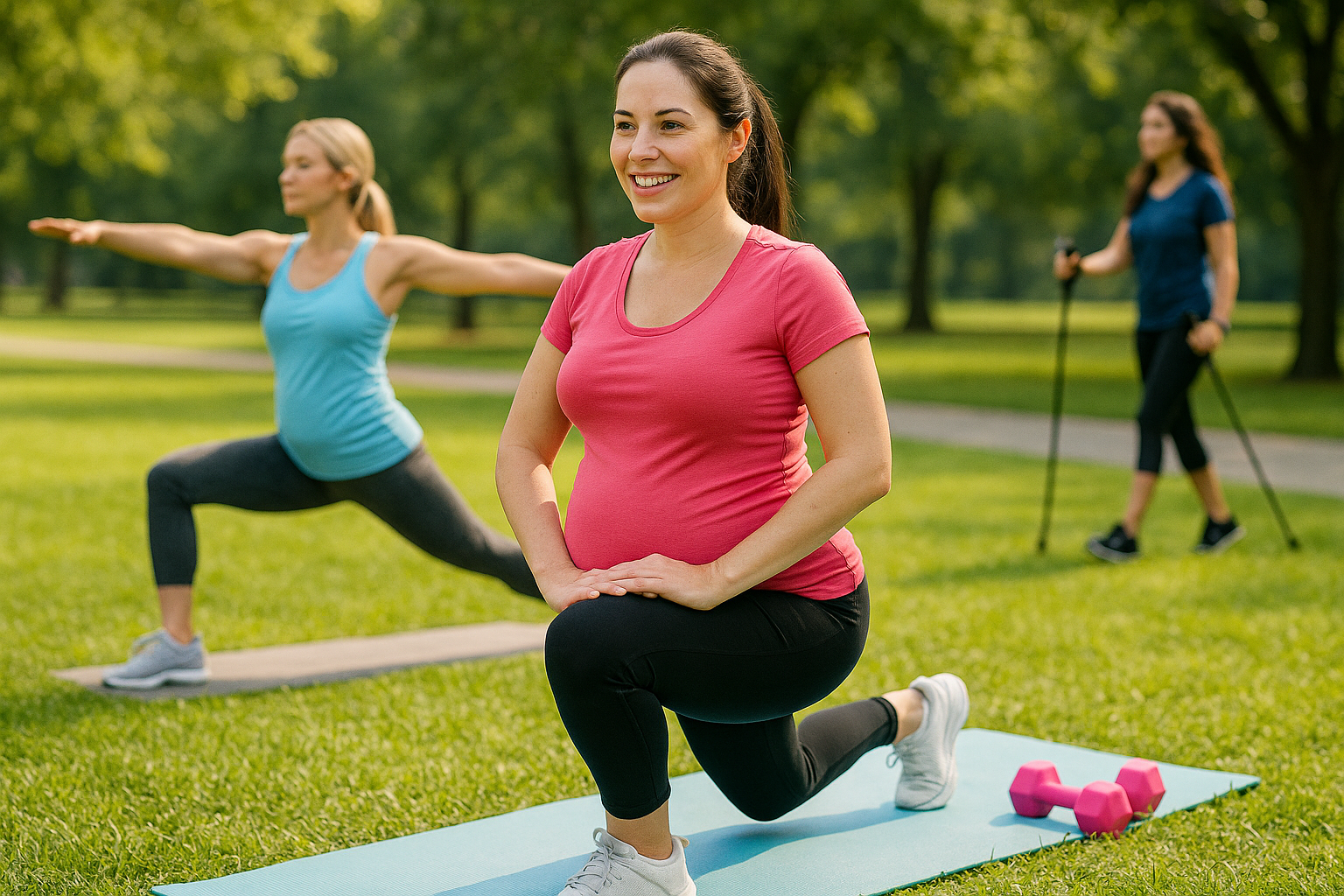Pregnancy is a demanding period in a woman's life that brings a lot of changes. Expectant mothers often grapple with the question of whether it's safe to exercise during this period, or whether it's better to limit activities. Experts agree that movement and exercise during a healthy pregnancy are safe and, overall, beneficial.
Although the health benefits of exercising during pregnancy are well documented, many women worry about injuring themselves or the baby. The fear of exercising often stems from various myths and misinformation.
1. Health benefits for the mother
Daily or regular movement during pregnancy positively affects not only the body but also the mind. Studies show that exercise helps women reduce stress and anxiety and curb mood swings. It also supports overall emotional balance, which is very much needed during this period.
Beyond mental health, exercise also helps with the prevention of physical complications. The vast majority of pregnant women experience, for example, swelling of the limbs, back pain, or joint pain—regularly performed exercises and stretching relieve these difficulties or eliminate them altogether.
Regular movement helps prevent health complications such as gestational diabetes, high blood pressure (hypertension), or preeclampsia.
Equally important, women who exercise regularly feel less tired, sleep better, and have stronger immunity.
2. Health benefits for the baby
Exercise doesn't benefit only the mother; it also significantly affects the baby. Physically active mothers deliver better oxygenated blood to the fetus, which positively influences the baby's development in the womb. Good circulation and oxygen supply mean a reduced risk of fetal complications.
According to research, babies of women who exercised during pregnancy are calmer, cry less, and sleep better after birth. They are also better prepared for labor and possible complications. In the longer term, these children show better motor skills after birth and achieve better outcomes in psychomotor development.
3. A smoother labor
One of the most important benefits of exercising during pregnancy is its positive impact on labor. Women who exercise regularly and appropriately have stronger pelvic floor and abdominal muscles, which makes uterine contractions and the course of labor easier. A strong, flexible body is therefore a great helper in managing the physically demanding process that childbirth undoubtedly is.
Another key benefit is that active mothers have a shorter recovery.
4. Consult your activities with your doctor
Before starting any physical activity, it's important to go over everything with your gynecologist or obstetrician, which sports are right for you and which you should avoid. Only then can you be sure that the activities you pursue are safe not only for you, but especially for your baby. The doctor can also consider all possible risk factors, such as high blood pressure, multiple pregnancy, a history of preterm birth, various infections, or medical complications.
If you exercised regularly before pregnancy, consult how much you can continue exercising or whether you need to reduce your pace and activity.
Remember to regularly inform your doctor about how you're handling physical activity. Share with them whether you have pain, problems, or any other unusual symptoms.

5. How to exercise safely? Basic rules for expectant mothers
If your doctor has already given you the green light, it's important to follow a few key rules. First, pay attention to exercise intensity—it's definitely not good to overstrain your body. It's better to exercise regularly, but focus on light to moderate-intensity activities, such as walking, prenatal yoga, swimming, or Pilates.
Equally important is proper hydration. During pregnancy, the need for fluids increases significantly, so keep a bottle of plain water ready during every activity. This not only helps prevent dehydration but also helps prevent fatigue and headaches.
Remember that your center of gravity changes during pregnancy and your balance shifts. Always choose stable positions and avoid exercising while lying on your back, especially in the later stages of pregnancy, because this position can reduce blood flow to the fetus.
Regular rest during exercise is also significant. Give your body time to rest and recover, carefully alternate active parts with rest phases, and don't overexert yourself.
6. Warning signs—when to stop exercising immediately?
Your health and your baby's health should always be the number one priority. It is therefore essential to recognize in time the signals that warn you that something isn't right and when you should stop your workout immediately. The most common warning signs include chest pain, sudden severe headache, dizziness, weakness or feeling faint, severe shortness of breath and breathing difficulties, bleeding, or leakage of amniotic fluid.
If any of these symptoms appear, stop exercising immediately and contact your doctor as soon as possible.
Also be willing to accept the fact that some activities that didn't bother you before may now be less comfortable or even painful. Your body undergoes changes during pregnancy that require extra caution and gentleness.
7. Useful aids for exercise during pregnancy
To feel comfortable while exercising and be as safe as possible, it pays to invest in the right equipment. The choice of appropriate clothing is important—it should be comfortable and breathable and, above all, should not restrict your growing belly or pinch in any way. It's also good to have suitable athletic footwear. During pregnancy, changes in the arch of the foot are common, so it's ideal to have shoes with quality arch support and sufficient cushioning.
Certain exercise aids can significantly increase safety as well, such as exercise balls, non-slip workout mats, various balance pads, and resistance bands, which help you exercise gently, stably, and safely.
There are now smartwatches or rings and mobile apps designed specifically for expectant mothers that help track heart rate or send alerts about the need for hydration or rest.
Exercise during pregnancy is healthy and suitable. Always consult your activity with your doctor, and equip yourself with comfortable clothing and aids designed specifically for pregnant women.

